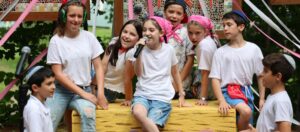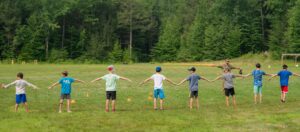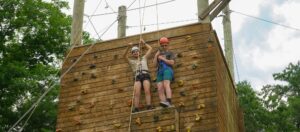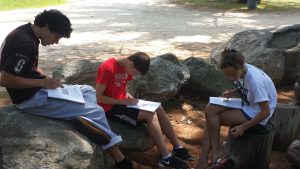Dvar Torah on Parashat Balak
This week’s פרשה (Torah portion), בלק (Balak), is the source for one of our most famous prayers, מה טבו (Ma Tovu). Interestingly it was composed by a non-Jewish נביא (prophet), בלעם בן בעור (Balaam the son of Beor). The statement is meant as a ברכה (blessing) for the Jewish people even though Balaam was called upon by Balak, the king of Moab, to curse the Jewish people. Hertz, in his commentary on Torah, says that Balaam was “swept away in rapt admiration of the Israelites encampments and homes arrayed harmoniously and peacefully, a picture of idyllic happiness and prosperity.” This seems like a strange description in light of the run-ins that the Jewish people recently had with God, their challenging of their leadership, and their complaining that they wished they were back in Egypt rather than in the harsh conditions of the dessert. However, it is not about never having complaints or disagreements that Balaam recognizes as establishing a beautiful and peaceful community. Rather, it is about how a community deals with these tensions and setbacks. The Jewish people always end up returning to God and they follow Moshe to the borders of ארץ ישראל (Israel) over the course of forty years. They don’t ever actually turn back.
At camp, there are those times when campers are homesick, or there is tension within friendships, feelings of hurt or feelings of being left out. As we begin the three weeks leading up to תשעה באב (the ninth of the Hebrew month of Av), we are reminded that things can get rough when living in community. People don’t always agree. Individuals in communities can even hate each other in a way that burns and destroys the community from within and without. There can sometimes be a sense of loneliness even when surrounded by multitudes. The question is how we deal with these tensions and feelings when they arise. Do we ignore them or address them head on in a positive and respectful way.
Here at מחנה יבנה (Camp Yavneh), we are intentional about our community. We emphasize providing time and space for everyone’s voice to be heard. We dive right into our pluralism and what it means to live in a diverse Jewish community. Our מדריכים (counselors) are tuned into making sure that every child is included and feeling part of our community. It is hard to describe what a summer at Camp Yavneh is like. It’s the kind of thing that only those who have actually experiences it are fortunate enough to fully understand. מה טבו – how good it is – to be part of this very special community that is מחנה יבנה (Camp Yavneh).
Shabbat Shalom,
Rabbi Yehudah Potok
Kerem Moreh





